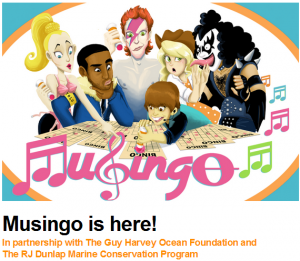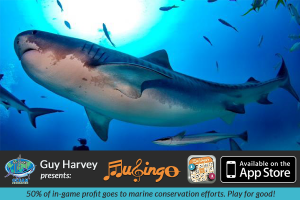 This week saw the launch of Musingo, an interactive music trivia app for iOS. The developer, Good World Games, lets users make an impact in the real world through the game apps they play, and Musingo is no different.
This week saw the launch of Musingo, an interactive music trivia app for iOS. The developer, Good World Games, lets users make an impact in the real world through the game apps they play, and Musingo is no different.
Though the app is free, there are opportunities for in-game purchases of additional game tokens, as well as the opportunity to buy the songs you hear through iTunes. 50% of the profits from those in-game purchases are donated to my lab, the RJ Dunlap Marine Conservation Program, where they will be used to help support our many ongoing research projects.
Read More “Check out Musingo, the music trivia app that helps save the ocean” »


